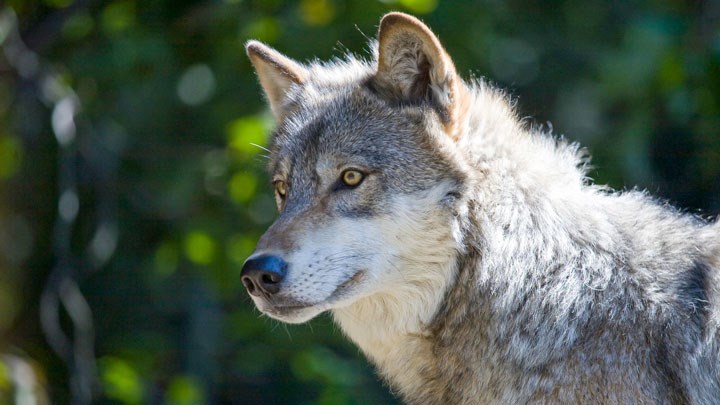
by Phil Phillips - Tuesday, March 22, 2022

The saga of the gray wolf continues following a San Francisco-based U.S. District Court judge’s decision on Feb. 10 to relist the recovered species under the Endangered Species Act (ESA). Those who scratched their heads over this did so for good reason as the gray wolf was delisted in 2020 after science repeatedly showed it no longer needed federal protection as a threatened or endangered species. But rather than allow the Department of Interior’s (DOI) U.S. Fish and Wildlife Service (USFWS) to free up resources to conserve far more vulnerable listed species, U. S. District Judge Jeffery White of California’s Northern District sided with animal rights extremists and returned gray wolves to the relisting merry-go-round. Now multiple members of the coalition American Wildlife Conservation Partners (AWCP) are urging the DOI and USFWS to fight the federal overreach and the politicization of the delisting process by appealing the decision.
Specifically, four AWCP member groups—the National Rifle Association, Congressional Sportsmen’s Foundation, National Shooting Sports Foundation and Safari Club International—drafted an AWCP sign-on letter being sent to DOI Secretary Deb Haaland this week to press the issue. It drew 26 AWCP signatories representing millions of American sportsmen and women. It explained that Judge White’s decision misinterprets the ESA and prevents a recovered species from being delisted though science shows delisting is consistent with the ESA.
“We respectfully request that you remain true to Congress’ express desire to use the ESA to recover species to the point at which the measures provided pursuant to this Act are no longer necessary and appeal this erroneous decision,” the letter states. In letting science guide the process, it also explains that any decision regarding the listing or delisting of the gray wolf is not a political issue.
“The Service has recognized the incredible recovery of gray wolves for nearly 20 years, over the course of multiple Presidential Administrations,” it explains. “Wolves have greatly expanded their numbers and range in their primary habitat. This is a scientific fact. And the wolves’ recovery has impelled the Service’s repeated efforts to remove gray wolves from the ESA lists.”
While it is the USFWS’ responsibility to interpret the science and administer the ESA, such court decisions show that the ESA is being interpreted in a way that may never permit a recovered species to be delisted.
“The Court’s decision largely turns on technical legal issues,” the letter notes. “These issues arise largely because wolves were originally listed across the lower 48 states, even though they did not inhabit—and will never inhabit—all states. The 2020 delisting rule focused primarily on the high-quality habitat with established and long-recovered wolf populations: the Great Lakes and Northern Rocky Mountains. The Service concluded that these populations are sufficiently robust and redundant to ensure that wolves remain viable in the U.S., especially because these populations connect to the thousands of wolves in Canada.”
This is precisely why the USFWS did not review potential threats to wolves in areas where they are “transient,” such as the Dakotas, Nevada and Iowa. “The Court mistakenly found this to be an error,” the letter explains. “And importantly, the Court did not find that the future existence of wolves is threatened across the lower 48 States. It found only that the Service did not properly implement the ESA’s five-factor threats analysis for wolves outside the core populations.”
The letter also notes the court did not find that state management of wolves, including legal, regulated hunting in some states, threatens their existence.
“The Court instead found that the Service adequately assessed the potential risks to wolves from state management when it concluded that state management does not pose a threat to the long-term viability of wolf populations in the Great Lakes, the West Coast or the Central Rocky Mountain States of Colorado and Utah. The ruling does not question the fact that gray wolves are recovered in the Great Lakes and have exceeded recovery criteria for almost two decades.” Again, we see how the move is the result of a few narrow technical issues.
Importantly, the letter explains that the ruling does not affect gray wolves where they are already delisted in Northern Rocky Mountain states such as Idaho, Montana and Wyoming. If the USFWS appeals the court’s incorrect decision as the AWCP urges, the process will not impact the legal status of those wolves.
In the meantime, the latest ruling ties the hands of the USFWS, and we see what happens when a federal judge falls in line with those against legal, regulated hunting. In the end, as we have seen with the delisting of recovered grizzly bears, relisting a recovered species based on emotion and politics only harms the species and damages scientific wildlife management.
About the Author
Outdoor writer, TV host and farm/ranch real estate associate broker Phil Phillips has hunted five continents, taking 60 species worldwide. Prior to hosting hunting programs, he started Colorado's first Ranching for Wildlife Program for antelope. Working alongside professional land managers, he went on to guide clients to 500-plus big-game animals and was named Safari Club International’s (SCI) North American Bowhunting Outfitter of the Year. A Life member of hunter-backed organizations including the NRA, Mule Deer Foundation, Dallas Safari Club, Houston Safari Club Foundation and Safari Club International, he can be reached at [email protected].
E-mail your comments/questions about this site to:
[email protected]
